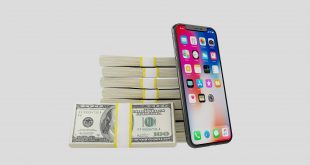Written by Jordan Barela, Editor-in-Chief
We use our smartphones for everything. Everything from checking bank and social media accounts, browsing the internet endlessly, and spending every waking minute glued to a touch screen.
With the invention of smartphones, we are able to carry a pocket-sized computer, game console, portable banking, and everything in between in our pockets.
What if your smartphone could do more than it already does? What if it could sense what you were feeling? Sounds like the greatest science fiction plot.
Theconversation.com recently published the findings of a study from the Journal of Medical Internet Research, which investigated whether a person’s change in behavior could be measured on a smartphone. Depression was the top emotion that was measured in the study.
28 participants, 14 with depressive symptoms and 14 without, took part in this study. Each participant took the PHQ-9, which is a nine question survey about various symptoms of depression. This is a very common test; in fact, most people have taken this test at a regular doctor’s visit.
Along with this test, the study embodied “Big Brother” as all phone activity was tracked, excluding calls. The basis of the study was tracking a user’s movement through GPS capabilities. This was utilized in the study to track where and how often users visited places over a two week course.
The study found that people with irregular movements had depressive symptoms. The people that weren’t depressed went to the same places around the same time. The opposite was found for the people who have depressive tendencies.
Another startling find is that people who are more depressed tend to use their phones more, excluding making phone calls. Turns out, if you find yourself constantly texting, playing games, or doing really anything on your phone, you are depressed.
Dang, I must really be depressed.
 The Spectator The independent student newspaper of Valdosta State University
The Spectator The independent student newspaper of Valdosta State University






